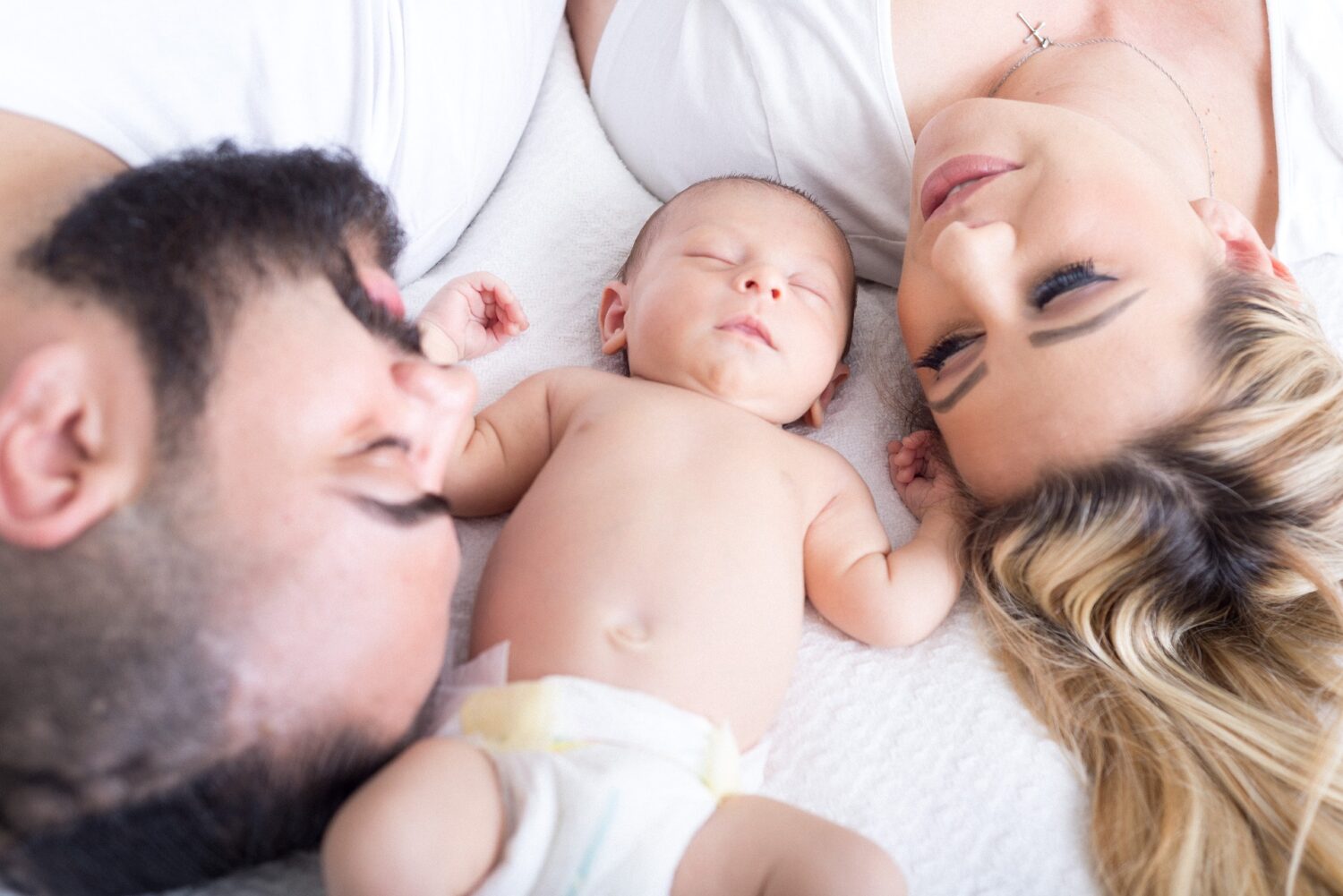
Co-parenting as dual-earners, i.e. where both parents earn a living and both raise the children, is not for the faint-hearted. It is a challenging time and one that can bring you closer or drive a distance between you. It’s been found to cause a decline in relationship satisfaction (Kluwer, 2010), and a link has been demonstrated between coparenting quality and marital quality (Le et al., 2016; Morrill, 2010; Schoppe-Sullivan et al., 2004) as highlighted by Olsavsky et al., 2019.
Furthermore, the environment you create as co-parents affects the experience your developing child will have and we know that early childhood experiences can affect children immediately and for many years later, whether how easily they formulate friendships and romantic relationships as they age or their mental health later in life.
In new research by Olsavsky et al. 2019, surveys were used to collect data from co-parents starting from the third trimester of pregnancy up until 9 months postpartum, use four different time points: third trimester, three, six, and nine months postpartum. The research team aimed to understand how fathers’ perceptions of maternal gatekeeping behaviours (i.e., mothers’ encouragement or discouragement of fathers’ parenting) and coparenting closeness (i.e., how much coparents are growing together due to their shared parenting experience) predicted how fathers perceived how the romantic relationship was functioning as they transitioned into parenthood together as dual-earner, first-time, different-sex parents.
To get a sense of fathers’ perceptions of whether maternal gate closing was occurring, questions such as, ‘How often does your baby’s mother criticise you?’, were asked and to gauge maternal gate opening, questions such as, ‘How often does your baby’s mother invite you to help?’, were asked.
To ask fathers about their perception of coparenting closeness, questions statements such as, ‘We are growing and maturing together through experiences as parents’, were rated on a scale of 0 (not true of us) to 6 (very true of us).
To gauge the fathers’ perceptions of general health of the relationship, statements such as, ‘Do you confide in your mate?’, were rated from 1 (never) to 6 (all the time), and the final question asked them to rate their overall happiness and satisfaction in the relationship from 0 (extremely unhappy) to 6 (perfect).
From the findings of their study, the researchers report that, ‘When fathers reported higher levels of gate closing at 3 months postpartum, they experienced relative decreases in coparenting closeness from 3 to 6 months postpartum… In addition, when fathers experienced greater declines in coparenting closeness from 3 to 6 months postpartum relative to other fathers, they also reported relative decreases in dyadic adjustment (relationship functioning) from the third trimester to 9 months postpartum…’
So, when new fathers feel as though their partner is discouraging their parenting efforts, the fathers feel less close to their partner on this new adventure called being first-time parents together, three to six months after the newborn arrives. And when they feel less close in this way at three to six months, their overall happiness and satisfaction within that romantic relationship declines from three months after birth to nine months after birth.
Tips to help
1. If you’re first time parents and even if you have multiple young children, it’s good to take some time out for yourselves wherever possible and, importantly, support each other in doing so. This allows each of you time and space to recharge and rebuild resilience for all the challenges life is currently throwing at you. Research finds that when we’re already in a positive emotional state when a challenge occurs, we can handle the challenge much more resiliently.
2. Ask yourselves questions like:
- ‘How can I make him feel empowered and confident as a father/mother looking after a young newborn/baby/child?’
- ‘How can I make him feel appreciated as a father looking after a young newborn/baby/child?’
- ‘How can I help her to feel more comfortable with my parenting as a new father when I notice her looking anxious or concerned?’
- ‘What type of parenting help would she/he find most helpful from me?’
3. Tell each other what you want so that they know instead of expecting them to guess and instead of assuming they/you know what’s helpful and appreciated, such as:
- ‘I would love it if you could help out with bathing/nappy changes/feeding/____’
- ‘I’d feel much calmer if you would solely focus on the baby when helping out without being distracted by your emails/social media/____.’
4. Be compassionate and be a team. This is going to be a time of challenges for both of you and you’ll get much further playing to your strengths than focusing on your weaknesses. Approach everything from a place of compassion and you’ll find it easier to work as a team, empowering and helping one another rather than criticising one another and getting frustrated by your partner’s mistakes.
Use your thoughts, words and behaviours to help create a happy, appreciative, uplifting environment, and you’ll more likely get through this phase becoming closer to one another rather than farther apart.
How To Communicate Better With Your Spouse
Reference:
Olsavsky, A. L., Yan, J. , Schoppe‐Sullivan, S. J. and Kamp Dush, C. M. (2019). New Fathers’ Perceptions of Dyadic Adjustment: The Roles of Maternal Gatekeeping and Coparenting Closeness. Family Process, x:1-15.
Self-Help Courses Relationship Coaching Dating Coaching Anxiety Coaching Confidence Coaching

























